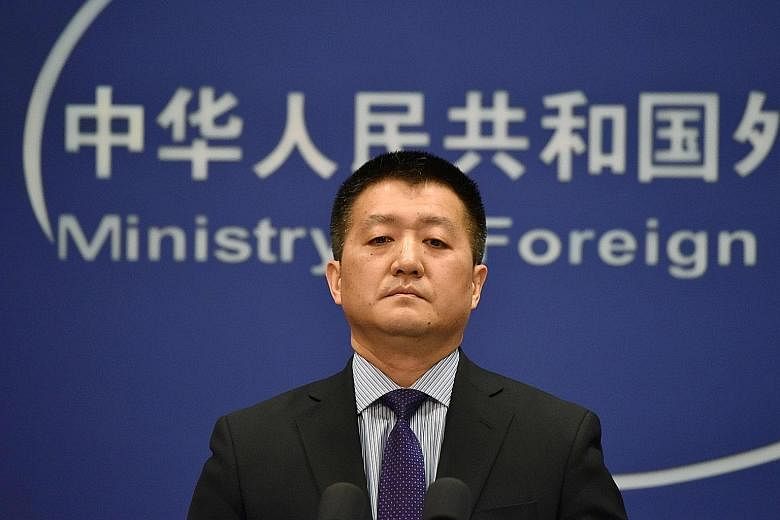The Philippines has expressed "very serious concern" over reports that China landed long-range bombers on islands in the disputed South China Sea.
Mr Harry Roque, a spokesman for President Rodrigo Duterte, told reporters yesterday that the Philippines would raise "recent developments" in the South China Sea during bilateral talks with China in August.
The Philippine Foreign Ministry also said in a statement that it was taking "appropriate", but low-key, diplomatic action "to protect our claims, and will continue to do so in the future".
"We reiterate our commitment to protect every single inch of our territory and areas which we have sovereign rights over," the ministry said.
But it stopped short of condemning China's action "to avoid any drawbacks and challenges".
Mr Duterte has made it a cornerstone of his foreign policy to cultivate friendship with Beijing, but Philippine lawmakers have criticised him for not confronting China.
China's air force said bombers such as the H-6K had landed and taken off from islands and reefs in the South China Sea as part of training exercises last week.
The Washington-based Asia Maritime Transparency Initiative identified the location of the exercise as Woody Island, China's largest base in the Paracels that are also claimed by Vietnam and Taiwan. With its combat radius of about 3,520km, the H-6K has all of South-east Asia in its range from Woody Island.
Hanoi demanded that Beijing "immediately cease" its military moves in the area, its Foreign Ministry said in a statement to Agence France-Presse yesterday. The exercises "seriously violated Vietnam's sovereignty... raising tensions (and) destabilising the region", the ministry said.
Chinese Foreign Ministry spokesman Lu Kang told a daily news briefing in Beijing yesterday that other countries should not "read too much" into what he called a routine military patrol.
China claims almost the entire South China Sea, a strategic waterway through which about US$3 trillion (S$4 trillion) worth of sea-borne trade passes every year.
Brunei, Malaysia, the Philippines, Taiwan and Vietnam have conflicting claims in the area.
Farther south in the Spratly group of islands, China has constructed man-made islands on seven Philippine-claimed reefs and equipped them with runways, hangars, radar and missile stations.
The United States last Saturday criticised China's "continued militarisation" of its island outposts, and warned that this could destabilise the region. The US does not have any territorial claims in the South China Sea but insists on freedom of navigation and a peaceful resolution of disputes without coercion or threat of force.
Mr Duterte last Saturday again defended his position that confronting China would only lead to a war the Philippines could not win.
"I can send my Marines there. I can send every policeman there. But what will happen? They will all be massacred," he said.
Yesterday, Mr Roque pointed out that a recent meeting between senior Philippine officials and the commander of US forces in the Pacific showed Manila was not abandoning its ties with Washington.
The Foreign Ministry said on Sunday that Defence Secretary Delfin Lorenzana, Foreign Affairs Secretary Alan Cayetano and Executive Secretary Salvador Medialdea met Admiral Harry Harris, chief of the US Pacific Command, in Honolulu last Friday.

